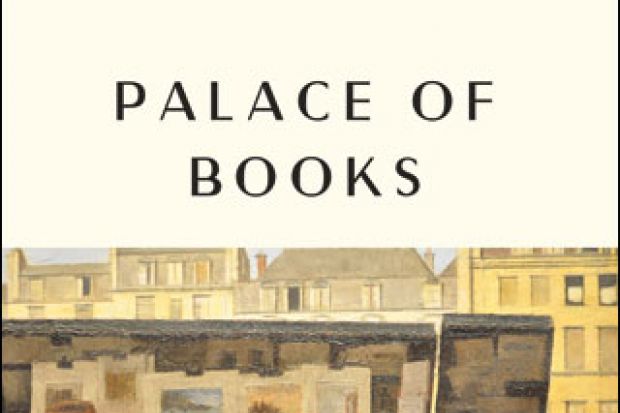Academic literary criticism is frequently declared dying or dead (often, paradoxically, in the work of academic literary critics). Happily for its practitioners (and - usually - happily for its students) it’s thriving. However, since the heyday of public critics such as F. R. Leavis - and with honourable exceptions such as Jonathan Bate and Terry Eagleton - a gap has arisen between what academics write and what the public reads about literature.
Because, be sure, there is a huge public desire to discuss books: witness the boom in literary festivals and the popularity of book groups. This desire is not satiated by the doorstop literary biography nor the stale author interview (“where-did-you-get-your-ideas-from-now-you’ll-read-from-chapter-two”): indeed, many book festivals are beginning to offer wider and more challenging ways of talking with readers, and universities are starting to develop what we call, with our characteristic mix of earnest accuracy and deadening jargon, “public engagement”. But responding to this desire, too, is a new genre of books about books, or what Joyce Carol Oates names the “bibliomemoir”, combining criticism, author biography and memoir. Recent examples include Samantha Ellis’ account of the fiction about women that shaped her, How To Be A Heroine; Rebecca Mead’s The Road to Middlemarch: My Life with George Eliot; Geoff Dyer’s savage account of how he didn’t write a book about D. H. Lawrence, Out of Sheer Rage; David Shields’ How Literature Saved My Life; and more. Roger Grenier’s utterly charming, readable and sophisticated collection of reflections, Palace of Books, fits perfectly into this genre.
Or, perhaps, this new wave has just caught up with Grenier: he is a well-established figure in the French literary world. Born in 1919, he worked with Camus on the journal Combat, and he seems to have known all the greats of post-war French writing. A novelist and a publisher, a short-story writer and journalist, his discussions of reading and writing have an easy air of nonchalant sophistication - and the lovely translation by Alice Kaplan keeps the tone light.
At first sight, each essay seems like a string of beautiful, apposite and insightful quotations from two centuries of European, Russian and American literature, each focused around a theme (“Leave-taking”, “Writing about Love, again…”) strung together by Grenier’s numinous intelligence, with occasional autobiographical details (just enough, as it were, to lend experience to the argument). But as the collection goes on, it becomes clear that something more demanding is going on. In the essay “Private Life”, for example, Grenier begins by discussing the media circus that surrounds contemporary writers - but notes that this is not new “if you think about Sartre and Beauvoir…Musset and George Sand, Dante and Beatrice”. He points out how Gérard de Nerval’s mental illness was extensively discussed in print by his friends.
The apogee of this fashion is not in the present but in the “literary botany” of writer and critic Charles Augustin Sainte-Beuve, who judged the author in order to judge the work. But, Grenier observes, Proust and many others disagreed with him not only for more obvious reasons (“How does being a friend of Stendhal’s make you better suited to judge him?”) but centrally because this sort of “biographical criticism” makes no distinction between the outer life and the “occupation of writing”. In writing, “quieting the speech which belongs as much to others as ourselves, we come face to face once more with ourselves, and seek to hear and to render the true sound of our hearts” (Proust again).
Understanding what writing itself is evades easy capture for Grenier. Similarly, the essay “To Be Loved” takes on the question of “Why write at all?”: to be part of the literary world, to become famous, to be loved, to exorcise a trauma, to survive - Grenier finds writers offering perfect aperçus and apt quotations. But he ends with Sartre and the thought “what else to do?”: a satisfactory answer is elusive. The collection is obsessed by, circles around again and again, the very experience of writing and oddly how hard it is to communicate exactly what it is. The frustration and joys of writing, its causes and effects can all be told, but for Grenier there is something incommunicable about actual writing itself.
Academics know that, very often, the most interesting bits of the conference are not the plenary sessions or even the ahead-of-the-curve graduate student panels: the most thought-provoking moments are the off-the-cuff conversations in the queue for coffee, the intellectual speculations (and perhaps personal gossip) over a drink, the quick admissions of what that paper was really about as we rush from A to B. This book is just like that, full of clarity and revelatory moments (but with all the dull bits cut out): time spent with another charming and erudite guest in the Palace of Books.
Palace of Books
By Roger Grenier, translated by Alice Kaplan
University of Chicago Press, 136pp, £14.00
ISBN 9780226308340 and 6232591 (e-book)
Published 10 November 2014
Register to continue
Why register?
- Registration is free and only takes a moment
- Once registered, you can read 3 articles a month
- Sign up for our newsletter
Subscribe
Or subscribe for unlimited access to:
- Unlimited access to news, views, insights & reviews
- Digital editions
- Digital access to THE’s university and college rankings analysis
Already registered or a current subscriber?





